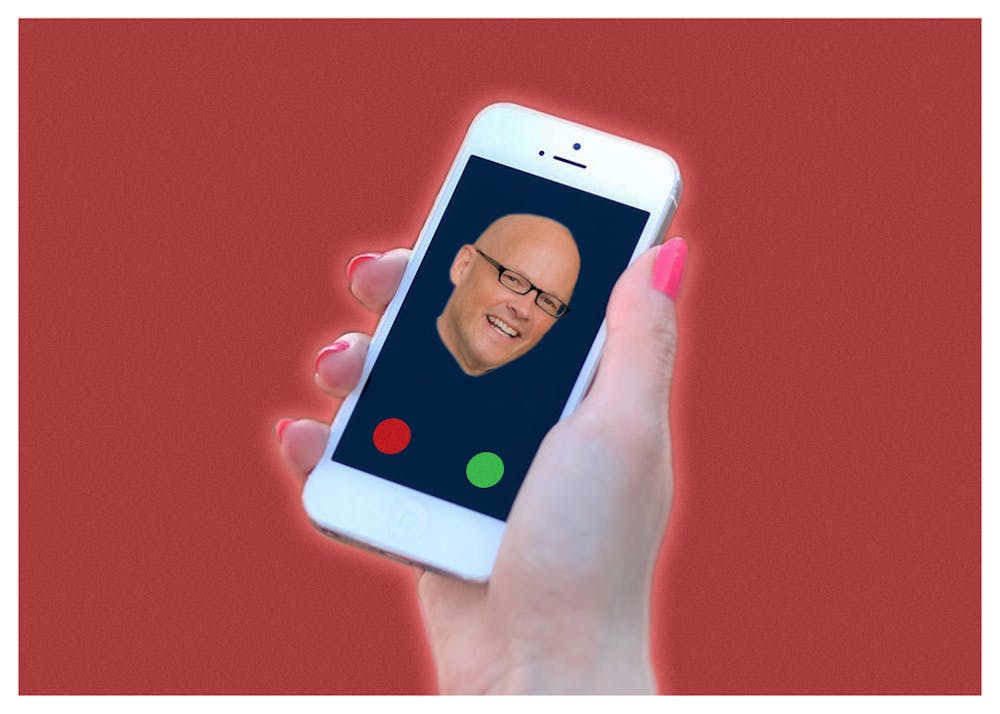After Miami University’s switch to online learning, President Greg Crawford began to reach out personally via phone call to check in on students during this transition.
Crawford reached out to student leaders and individuals whom he had known and worked with at different university activities.
Current Student Body President Jaylen Perkins received two phone calls from Crawford: one at the end of March and one on April 15th.
Perkins said the first call he received was very genuine.
“My brother just got into Miami,” Perkins said. “He asked about how my brother was doing, and he’s met my mom before, so he asked about her, too.”
“The second call was an update for me, because I sent him an email asking for updates on behalf of the student body. He gave a range of updates, but it was mostly an update on how we’re sitting as a university with coronavirus,” Perkins said.
Perkins said he appreciated the call and felt it was a point of reassurance.
“It’s one thing for someone from admissions or your advisor checking on you — but the university president is calling to check on students,” Perkins said.
Rob Abowitz, assistant director of Student Life, said the idea for a university-wide phone call campaign emerged from the president’s office. Abowitz said Crawford was energized by his earlier calls with students and wondered if the university could endeavor to call all students.
Abowitz said they set up a two-tiered system that runs off a Google sheet with 16,000 student names on it. The first tier allows faculty and staff to generate lists of students they know and work with.
“We realized the most successful calls would be from someone who knows you,” said Abowitz.
After that, Abowitz said, student IDs were randomly assigned for certain administrators to call.
Enjoy what you're reading?
Signup for our newsletter
Annie Neroni, a sophomore public health major and pre-med co-major, said she got a call from Crawford at the end of spring break.
“It was a random call,” Neroni said. “He seemed worried. He was asking if I had any issues with my classes, how my connection was, if exams were harder and if he needed to look into that. Since I’m pre-med, he asked if my labs were beneficial.”
Abowitz said that as of April 15th, 11,000 students had been contacted by a faculty or staff member, or a message had been left.
Within Residence Life, 78% of on-campus residents have been contacted as well, Abowitz said, noting that many students received calls from more than one person.
Neroni said after receiving a call from Crawford, she also received a call from her Resident Director.
“I think, to an extent, more than one person calling is not really needed,” Neroni said. “I think it’s harder if you have a certain issue. It could get lost.”
Crawford said in a statement to The Miami Student that the outreach is a campus-wide effort.
“This initiative is one of the many ways we continue to practice our core values from a distance,” Crawford wrote in the statement. “I am inspired as I talk with our incredible students and hear their hope, their optimism and their stories in these unprecedented times.”
Abowitz said the calls are an attempt to maintain connection to students. He added that the university's efforts were a benefit of being a member of the Miami community.
“At the very least, there are some questions getting answered that students didn’t know who to ask,” said Abowitz. “It’s really been a benefit to both the faculty and staff. Making these phone calls has been good just to reconnect to the university.”
Neroni said she thought the phone call was more about giving feedback about how the university was handling the situation but said it was nice to have Crawford call her personally.
“It gave me more reassurance that the university wants the best for us,” Neroni said.




